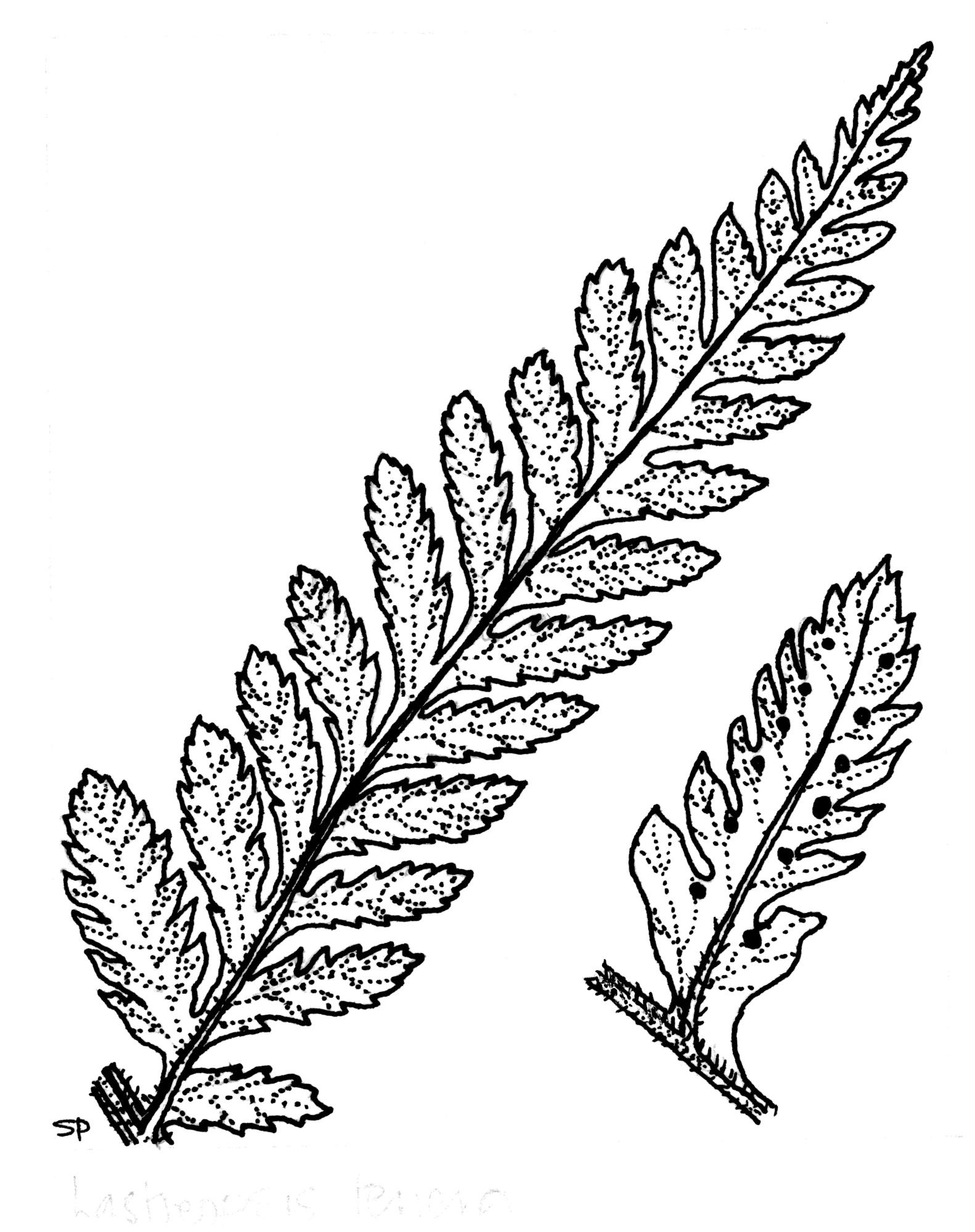
Greek from the combination of the generic name Lastrea with opsis - looking like.
Terrestrial ferns. Rhizome long-creeping or short-creeping below the surface, or erect, covered with narrow scales. Fronds mostly divided 3-4 times, triangular in outline with a continuous shallow, mostly hair-filled groove on upper axes, the side ridges of which extend round the margins of the ultimate segments; veins free, minor ones forked. Segments entire, lobed or spiny toothed. Sori round, terminal or central on small veins. Indusium roundish to kidney-shaped occasionally absent.
Propagation: Spores or occasionally division.
Recognition: Shallow, broad, hair-filled groove on upper axis continuous with grooves of side branches, side-ridges of the groove extending round the margins of the ultimate segments; the lowest frond branches are enlarged on the lower side, extending downwards to give the frond a 5-angled outline; grooves continuous with segment margins. The similar Arachniodes differs in having grooves on the upper surface that are not continuous with the segment margins.
Literature: Tindale (1965).
c. 35 species from S America, Africa, Asia and Australia (14 species in Australia).
Created by: Val Stajsic
Updated by: Val Stajsic, May 2018
